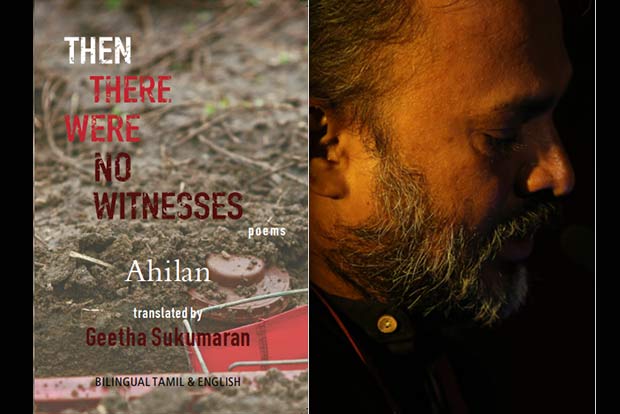Begin typing your search...
A poetry book that expresses the pain and loss of Sri Lankans
In recent times, Tamil poetry from Sri Lanka has taken a new turn, serving as a counter memory — a witness to torture, loss, trauma, and exile. Keeping this in mind, Packiyanathan Ahilan, a Sri Lankan poet has penned a poetry book called Then There Were No Witnesses.

Chennai
On his visit to Chennai for the book launch and readings, we caught up with the celebrated poet for a chat.
“These poems are from my three Tamil collections. I have expressed the feelings of loss, missing, nostalgias and inner and outer pains of a person or the community in Northern and Eastern Sri Lanka with subtlety. The poems represent the ‘other realities’ of the ‘others’ in Sri Lanka, who live under the grand narratives of hegemonic powers as victims and witnesses. My poems witness the pain and loss of the people of Sri Lanka,” he says.
A senior lecturer in Art History at the University of Jaffna, Ahilan began writing poems in the 90s and has published three collections titled Pathunkukuzi Naatkal , Saramakavikal and Ammai.
“I have a background with art history and this has allowed me to blend the 2,000-yearold Tamil cultural, literary, and philosophic tradition with visual, graphic imagery to create a distinct body of poetry. Visuals are one of my main sources of inspiration and stimuli to write poems. It is these visuals I identify with and turn them into words. In my last two collections, the photo images of war played a crucial role in writing my poems. Maybe, I don’t know exactly, all my poems carry this visual sense immensely on the word, body.”
Tamil poetry is not much celebrated among the young generation and Ahilan has got a clear reason for this.
“It’s high time we fostered the love for Tamil poetry among youngsters. Actually, this is a big question which connected with the mindset of Tamil community for the past several decades. If we do not understand and respect our culture — including language — how we understand its expressions and nuances? This is the first and great challenge amid the threat of global forces and the cultural politics within the country and community as well.”
The second big issue, according to him is, “Understanding or celebration of poetry comes from the field of literature. We follow a very formalistic and content analytic tradition that is not rooted in the principles of aesthetics and its socio-political scenario. Moreover, there is not much of an understanding of the socio-aesthetic phenomenon among youngsters. There should be activism and we need it to promote literature and culture through literature study circles,” Ahilan remarks.
The book is translated to English by poet-author Geetha Sukumaran.
— MJ
Visit news.dtnext.in to explore our interactive epaper!
Download the DT Next app for more exciting features!
Click here for iOS
Click here for Android
Next Story



